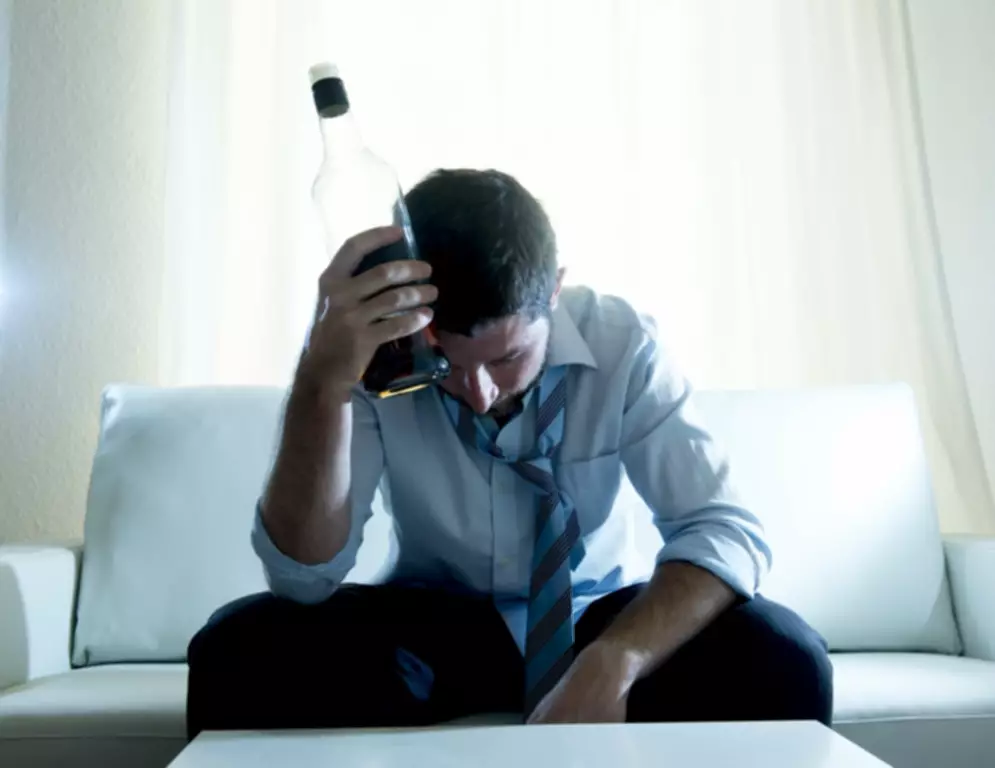Content
- How to Stop Alcohol Shakes?
- The Importance of Medical Detoxification
- Delirium tremens
- Detox Programs That Help With Alcohol Withdrawal
- How long does shakiness last after drinking?
- How to Stop Alcohol Withdrawals
- What is alcohol withdrawal?
- Is It Normal to Have Shaky Hands After Drinking?
- Seeking Professional Help
Additional research also is needed to determine the most appropriate treatment settings as well as methods of engaging patients in ongoing relapse prevention efforts. Improved insight into these issues will enable clinicians to improve the efficiency and quality of care for patients who are experiencing or are at risk for withdrawal. The hands are the most typical site of tremors and shakes, although other body parts, including the arms and legs, may also be affected. These rhythmic shaking usually begin 6-10 hours after the last drink and peak around hours after the last drink. These withdrawal shakes can lead to a shaky voice, difficulty holding utensils, and even affect your mobility.
- Benzodiazepines are used to treat withdrawal symptoms such as tremors but must be used under close medical supervision, as they can be dangerous.
- We must note that alcohol can damage the brain and sympathetic nervous system to the point that alcohol shakes become chronic.
- Eating healthy fruits and vegetables can help you balance the sugar levels that your body is used to.
- These findings support the association between alcohol intake and the clinical manifestations of withdrawal syndrome.
After consuming alcohol, it is not uncommon to experience a period of shakiness. How long this shaking lasts depends on the individual and the amount of alcohol consumed. In most https://ecosoberhouse.com/ cases, if you are only slightly buzzed or tipsy, your trembling should stop within a few minutes. A simple form (like dehydration) will last until you drink enough fluids.
How to Stop Alcohol Shakes?
These shaky hands from alcohol can be quite debilitating and embarrassing to live with. Doing something simple, like writing or typing, with alcohol tremors becomes a lot more difficult. Alcohol tremors typically take effect around 6-8 hours after you finish drinking and peak around hours after your last drink. Nerves and low blood sugar are two primary causes of alcohol-induced shakes. If you feel shaky after having a drink or two, eat something before drinking and take your time when consuming beverages.
How do you get rid of shaking after drinking?
Drink lots of water and other non-caffeinated beverages
Staying hydrated throughout detox helps flush toxins from your body, which may lessen shakes, as well as relieve other withdrawal symptoms. You can improve your cellular metabolism by adding some drinks with electrolytes to restore the imbalance caused by alcohol.
Alcohol abuse affects your physical and mental health, so it’s important to be guided by someone who knows your medical history. Your doctor may personally oversee your alcohol withdrawal, or he or she may refer you to an inpatient or outpatient treatment facility. Whatever recovery option you choose, it is important to have medical supervision. Additionally, headaches, nausea, and high blood pressure can all result as the body processes leftover alcohol and adjusts to a normal chemical balance.
The Importance of Medical Detoxification
Low blood sugar might also play a role, as alcohol can have an impact on your body’s ability to monitor blood sugar levels. When blood sugar gets low, it can result in shaking, along with other hangover-like symptoms, including sweating and headaches. If the alcohol shakes persist for months after abstinence, the addiction specialists will typically recommend that the patient see a neurologist.

This usually takes around a decade to occur but the graduality makes the symptoms difficult to notice. It can begin as nothing more than a misstep and eventually manifest into a complete loss in motor function. One of the main physical symptoms of a damaged cerebellum is a chronic shaking of the hands. The answer to this question depends on context but, just because a person experiences shaking does not mean they meet the criteria for AUD. Many party-goers who have had one too many drinks the night prior awake dehydrated and hungover. Contrary to popular belief, the shakes felt during a hangover are a withdrawal symptom; again, this does not mean that the person is an alcoholic, only that their sympathetic nervous system is trying to stabilize.
Delirium tremens
When alcohol addiction is present, tremors are often a sign of alcohol withdrawal. However, the good news is that these tremors can become less severe and eventually disappear when a person abstains from drinking. The symptoms of withdrawal are not specific and easily can be confused with other medical conditions. Consequently, the clinician’s initial assessment also serves to exclude other conditions with symptoms similar to those of AW. Examples of such conditions include subdural hematoma (i.e., the collection of blood in the space between the membranes surrounding the CNS), pneumonia, meningitis, and other infections.
You will be watched closely for hallucinations and other signs of delirium tremens. There are a number of common alcohol withdrawal symptoms, but not everyone will experience these symptoms. They can range from mild to severe and are usually proportionate to the amount of alcohol you usually consumed and how long you've been drinking. Our staff is prepared to help you focus on your physical health, so the detox process is as comfortable as possible. For someone with mild-to-moderate alcohol withdrawal symptoms, outpatient treatment might be the best course of action.
For more information about the alcohol treatment programs we offer and how we can help you end your battle with alcohol and get back to a healthy life, contact FHE Health today. If you can’t stop without help (and many people can’t), medication assisted treatment to help prevent alcohol cravings are available. That is why alcohol detox alcohol shakes and tremors and alcohol withdrawal treatment is administered by medical professionals. For example, other cross-tolerant medications, such as barbiturates, would be expected to relieve withdrawal symptoms and prevent withdrawal seizures and DT’s. In fact, a few studies have demonstrated that long-acting barbiturates can ease withdrawal symptoms.
The main goal of alcohol tremor treatment is to reduce your withdrawal symptoms, prevent any complications, and enroll in long-term treatment for alcoholism. If you undergo professional alcohol detox, you may be given certain medications to reduce symptoms, such as benzodiazepine, thiamine, or propranolol. Shaky hands, or tremors, can be a symptom of a wide range of medical conditions. Alcohol-induced trembling is often referred to as delirium tremens, the DTs, alcohol tremors, or alcohol shakes. Many people with alcohol use disorder suffer from dehydration and nausea during withdrawal.
How long does shakiness last after drinking?
“Signs” are changes in the patient’s condition that can be objectively observed by an examiner (e.g., temperature, a rash, or high blood pressure). Conversely, symptoms are changes that are subjectively perceived by the patient (e.g., irritability or craving for alcohol). The term “manifestations of alcohol withdrawal,” which is used in this article, can refer to either signs or symptoms. Consequently, these agents should be used only in combination with benzodiazepines.
How long until you stop feeling drunk?
The half-life of alcohol is four to five hours. This means that's how long it takes for your system to eliminate half of it. However, it takes around five half-lives to get entirely rid of the alcohol in your body. Therefore, it takes your body approximately 25 hours to completely metabolize the alcohol.
This leads to over-excitement of the nervous system until the brain can increase GABA receptor sensitivity and restore normal balance. R. James mentions delirium tremens in his 1904 ghost story "'Oh, Whistle, and I'll Come to You, My Lad'". American writer Mark Twain describes an episode of delirium tremens in his book The Adventures of Huckleberry Finn (1884). French writer Émile Zola's novel The Drinking Den (L'Assommoir) includes a character – Coupeau, the main character Gervaise's husband – who has delirium tremens by the end of the book. English author George Eliot provides a case involving delirium tremens in her novel Middlemarch (1871–72). Housekeeper Mrs. Abel provides Raffles' final night of care per Bulstrode's instruction whose directions given to Abel stand adverse to Dr. Tertius Lydgate's orders.
How to Stop Alcohol Withdrawals
It can be very comforting to know that millions have gone through withdrawal. Stand in solidarity with everyone else who has decided to address their substance use disorder and the challenge required to achieve a healthier life. It is usually difficult for people who drink to be completely honest about how much they've been drinking. You should report your drinking history straightforwardly to your doctor so you can be treated safely for withdrawal symptoms. Inpatient or outpatient addiction treatment typically involves counseling, evidence-based behavioral therapy, and aftercare support. A malfunction in the regions of the brain that govern the body’s muscles causes involuntary shaking.


